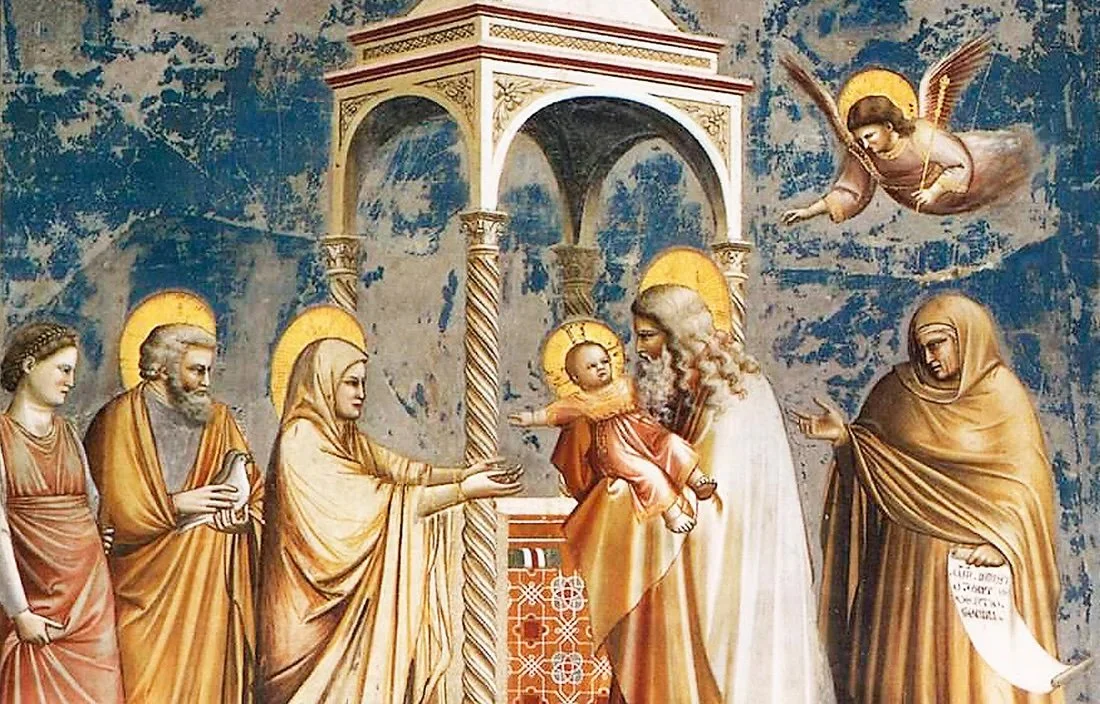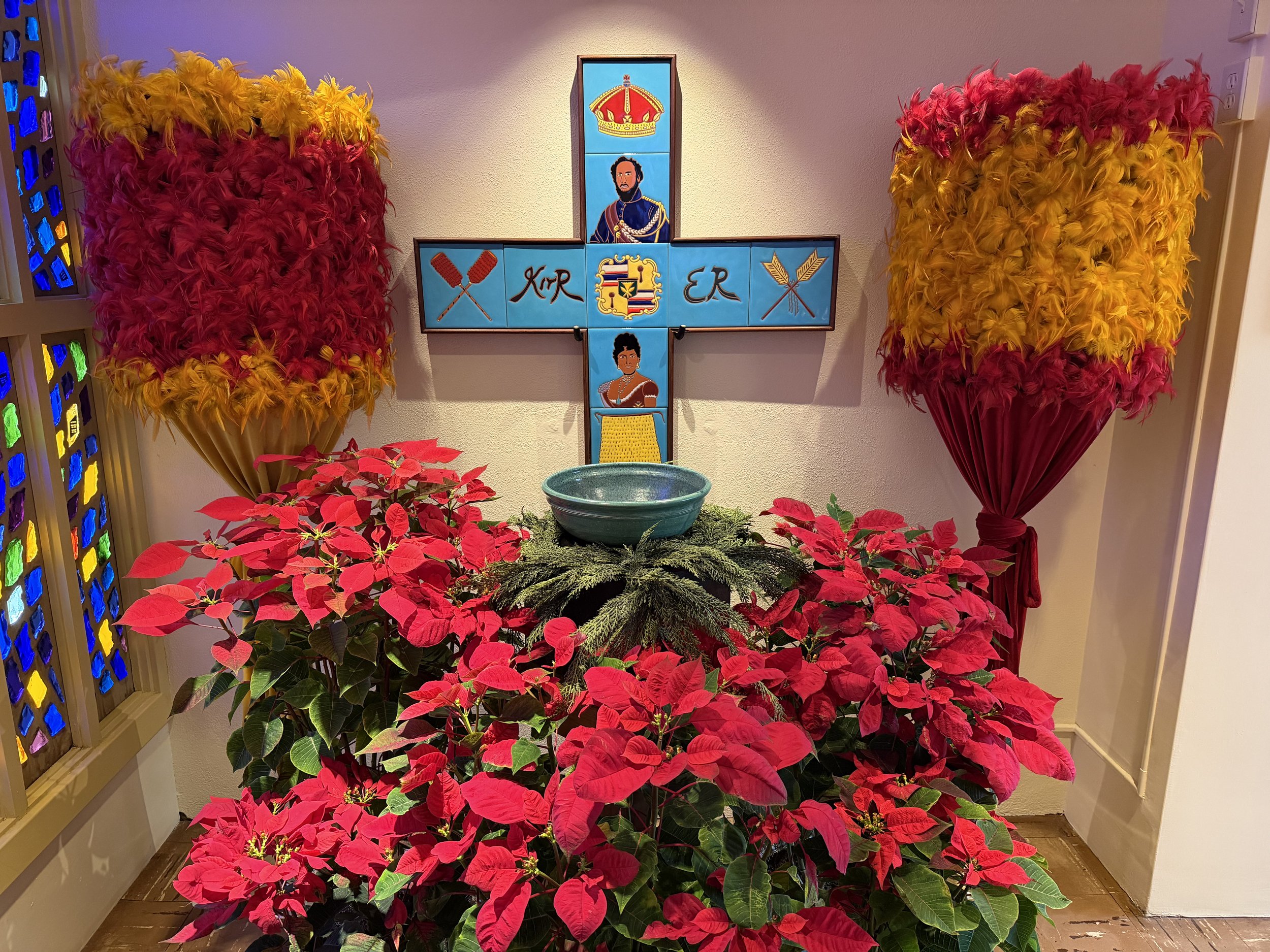From the Rector: The Prodigal Son and the Eucharist
/27 March 2022 - LENT 4
Luke 15:1-3, 11-32
Today’s Gospel parable speaks for itself. It’s a wonderful story of grace and mercy - of the power of God’s healing power with forgiveness. It’s beautiful how the son returns home, asks for forgiveness, and he receives it abundantly. It’s also wonderful that the father sympathizes with the older son - how he understands his annoyance, and he asks him to rejoice that his brother who was dead is now alive.
For some reason this story has me thinking about how we worship at St. Mark’s. This story also has me thinking about Lent, and lent’s themes of forgiveness and healing and mercy. It is no coincidence that we have this Gospel on the Fourth Sunday in Lent. This is Laetare Sunday, or “Rejoice Jerusalem” Sunday – Refreshment Sunday. This hearkens to the Introit for today, and if we had a complete set of rose vestments, we would use them today. The altar is adorned with flowers on this Sunday of refreshment. With these themes of healing and forgiveness, the mood lightens today.
One of the things that I appreciate about the Anglican Catholic tradition is the emphasis on healing, whether that is through the Sacraments, or through worship, or through anointing. Recently I was at a church not far from here, and I was struck by how austere, even severe one might say, the space was. It was super Protestant in its architecture, and as a result it seemed perpetually stuck in Lent. I was reminded about how the Protestant orientation in Christianity can be so cold and overly intellectual, lacking the healing and warmth we feel when we hear today’s Gospel.
You might be surprised to know that I don’t care for kneeling in worship during the confession. I am happy to have people stand when confessing their sins, but it is also one of those things that as a priest, I acquiesce with what is a leftover practice of Protestant Anglicanism. Rather than kneeling for confession, I prefer the catholic practice of kneeling for adoration rather than for penitence. Stand for the confession, but kneel for God’s presence in the Sacrament. Stand tall and boldly confess your sins, but when Christ descends from on high in the bread and wine, fall on your knees in adoration. Kneeling is not particularly penitence for me. It is adoration of the living God who descends to be among us.
I recently saw how an Anglican church in London, England, for the confession simply sprinkled the people with holy water at the beginning of mass, bringing them back to their baptism, reminding them of the healing mercies that comes to us through the living waters. For the people’s confession they were sprinkled with holy water, preparing them for feasting on the Sacrament - the bread and the wine that cleanses us of our sins. What more confession do we need than receiving the Sacrament – continually admitting our need for God’s food – God’s grace?
And this brings me to an important point. There is no greater way to receive the healing from God than to receive the Body and Blood of Jesus Christ in the Sacrament. This is why in the Anglo-Catholic tradition, the job of the priest is to celebrate the mass every day if possible. If a church has two priests, that church might very well try to have mass celebrated twice daily. There is an ethical duty for the priest to provide that which saves us daily, as there is no better way to experience the grace of God from today’s Gospel than in the Sacrament of Holy Communion. For the Christian, the Eucharist is the source and summit of our life each and every day. At the Eucharist we have our sins forgiven, and from the Eucharist we are nourished for the Christian journey and witness.
This is why if you claim to be an Anglo-Catholic and you are a priest, you celebrate the mass daily, and if you are a layperson, and you claim to be Anglo-Catholic, you do everything in your power to receive the Sacrament whenever possible. The Eucharist is the goal of our relationship with the God who heals, forgives, and loves us.
Alas, it is very difficult to be an Anglican Catholic in Honolulu as well as in Hawai‘i. We are the only church in the entire Episcopal diocese that offers the mass each day. If you do not live or work near this church, your options for a rich daily sacramental life are somewhat impossible. At least now, due to some churches throughout the world livestreaming the daily mass, one could make some spiritual communions throughout the week, but by and large, Hawai‘i is a spiritual desert when it comes to Anglicanism and the hospitality given to the people through the Sacrament. It makes our charism at St. Mark’s even more crucial for a witness within these Islands. One can also understand why some Anglicans go to Roman Catholic Churches during the week for the mass, as Anglican churches provide few, or zero, options.
Like the son who returns to the Father asking for forgiveness, as Christians we seek to come to God Almighty daily, asking for forgiveness. God then puts forth an amazing feast called the Eucharist so that we may dine with Jesus Christ. Every time we come to the mass, we discover we were lost but now we are found. We were dead, but the mass raises us to life. There is nothing that we can do that will not be forgiven at this feast of God. With this in mind it would be a great tragedy not to offer the mass every day, and it is wonderful to be able to receive the healing of Jesus at the mass every day. So stand tall to confess your sins, and then adore the God who eagerly awaits to shower upon you abundant forgiveness, mercy, and healing. There is a great feast waiting for each of us, and at this feast we shall be forgiven of all our sins.
Father Paul Lillie +








